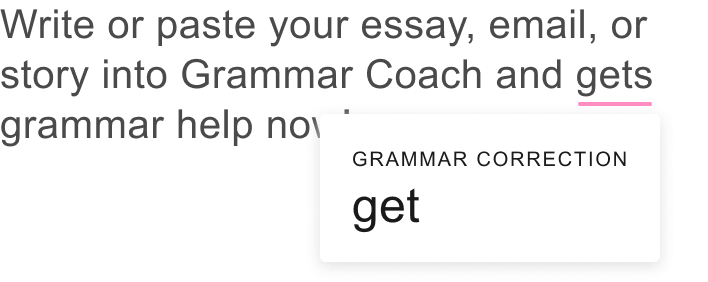The President That Was Dyslexic and Didn't Read Until He Was 10
[ stressed thee; unstressed before a consonant thursday uh; unstressed earlier a vowel thee ]
/ stressed ði; unstressed before a consonant ðə; unstressed before a vowel ði /
- New Word List
definite article
(used, especially before a noun, with a specifying or particularizing upshot, as opposed to the indefinite or generalizing strength of the indefinite article a or an): the book you gave me; Come into the house.
(used to mark a name, natural phenomenon, ship, building, fourth dimension, indicate of the compass, branch of try, or bailiwick as something well-known or unique): the dominicus; the Alps; the Queen Elizabeth; the past; the West.
(used with or as function of a title): the Knuckles of Wellington; the Reverend John Smith.
(used to mark a noun as indicating the best-known, about approved, most of import, near satisfying, etc.): the skiing center of the U.S.; If y'all're going to work hard, now is the time.
(used to marker a substantive equally being used generically): The dog is a quadruped.
(used in place of a possessive pronoun, to annotation a part of the body or a personal belonging): He won't be able to play football until the leg mends.
QUIZ
QUIZ YOURSELF ON AFFECT VS. EFFECT!
In effect, this quiz will testify whether or not you have the skills to know the deviation betwixt "bear upon" and "result."
The rainy weather condition could not ________ my elated spirits on my graduation 24-hour interval.

Origin of the
i
before 900; Heart English, One-time English, uninflected stem of the demonstrative pronoun. See that
how to pronounce the
As shown above, the pronunciation of the definite commodity the changes, primarily depending on whether the following sound is a consonant or a vowel. Before a consonant sound the pronunciation is [th uh]: /ðə/: the book, the mount [thursday uh-book, th uh-moun-tn]. /ðə bɒɒk, ðəˈmaʊn tn/. Earlier a vowel audio information technology is usually [thursdayee], /ði/, sometimes [thursdayi]: /ðɪ/: the apple, the cease [thee or thursdayi-ap-uhl, thee or thi-end]. /ði or ðɪˈæp əl, ði or ðɪ ɛnd/. As an emphatic form ("I didn't say a book—I said the volume.") or a citation form ("The word the is a definite commodity."), the usual pronunciation is [thee], /ði/, although in both of these uses of the stressed form, [thee] /ði/ is oft replaced past [thuh], /ðʌ/, especially among younger speakers.
Words nearby the
Thaxter, Thayer, Th.B., THC, Th.D., the, Thea, theaceous, Admirable Crichton, The, Age of Innocence, The, Alchemist, The
Other definitions for the (two of 3)
the 2
[ earlier a consonant th uh; before a vowel thee ]
/ earlier a consonant ðə; before a vowel ði /
adverb
(used to modify an adjective or adverb in the comparative degree and to signify "in or past that," "on that account," "in or by then much," or "in some or any degree"): He's been on vacation and looks the amend for it.
(used in correlative constructions to modify an adjective or adverb in the comparative degree, in one instance with relative force and in the other with demonstrative forcefulness, and signifying "by how much … by so much" or "in what degree … in that caste"): the more the merrier; The bigger they are, the harder they fall.
Origin of the
ii
before 900; Center English; Quondam English language thē, thȳ, instrumental case of demonstrative pronoun. Run into that, lest
Other definitions for the (3 of 3)
variant of theo- before a vowel: thearchy.
Dictionary.com Unabridged Based on the Random House Unabridged Dictionary, © Random House, Inc. 2022
How to use the in a sentence
British Dictionary definitions for the (i of three)
the ane
/ (stressed or emphatic ðiː, unstressed earlier a consonant ðə, unstressed before a vowel ðɪ) /
determiner (article)
used preceding a substantive that has been previously specified the pain should disappear soon; the man so opened the door Compare a ane
used with a qualifying word or phrase to point a particular person, object, etc, equally singled-out from others enquire the man standing exterior; give me the blueish one Compare a ane
used preceding certain nouns associated with 1'south culture, society, or community to get to the doc; mind to the news; watch the goggle box
used preceding present participles and adjectives when they function as nouns the singing is awful; the dead salute you
used preceding titles and certain uniquely specific or proper nouns, such every bit place names the United States; the Honourable Edward Brownish; the Chairman; the moon
used preceding a qualifying adjective or noun in certain names or titles William the Conqueror; Edward the First
Word Origin for the
Middle English, from Old English language thē, a demonstrative adjective that later superseded sē (masculine singular) and sēo, sio (feminine atypical); related to Onetime Frisian thi, thiu, Onetime High High german der, diu
British Dictionary definitions for the (ii of 3)
adverb
(often foll past for) used earlier comparative adjectives or adverbs for emphasis she looks the happier for her trip
used correlatively before each of two comparative adjectives or adverbs to signal equality the sooner you come, the ameliorate; the more I run into you, the more than I love you lot
Word Origin for the
Quondam English language thī, thӯ, instrumental case of the 1 and that; related to Old Norse thī, Gothic thei
British Dictionary definitions for the (three of 3)
Collins English Dictionary - Complete & Entire 2012 Digital Edition © William Collins Sons & Co. Ltd. 1979, 1986 © HarperCollins Publishers 1998, 2000, 2003, 2005, 2006, 2007, 2009, 2012
robinsonwirave1956.blogspot.com
Source: https://www.dictionary.com/browse/the
إرسال تعليق for "The President That Was Dyslexic and Didn't Read Until He Was 10"